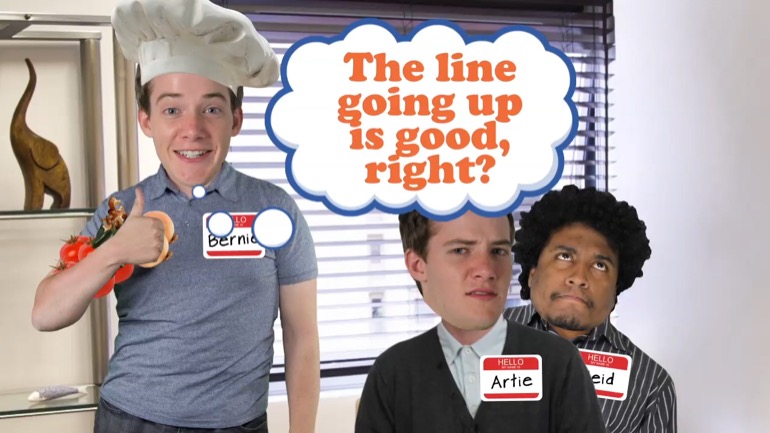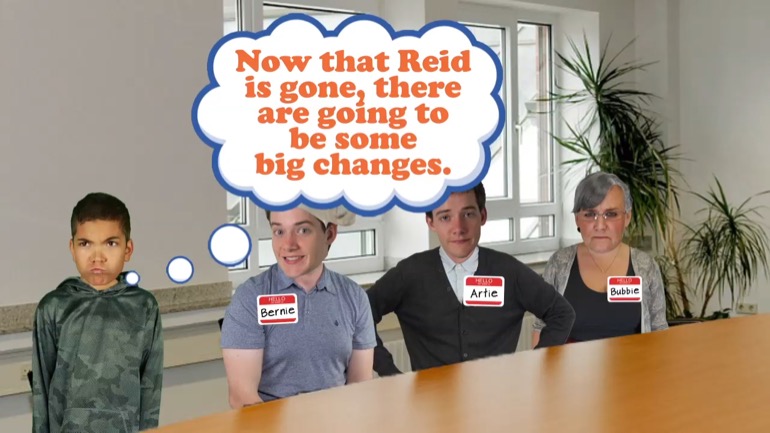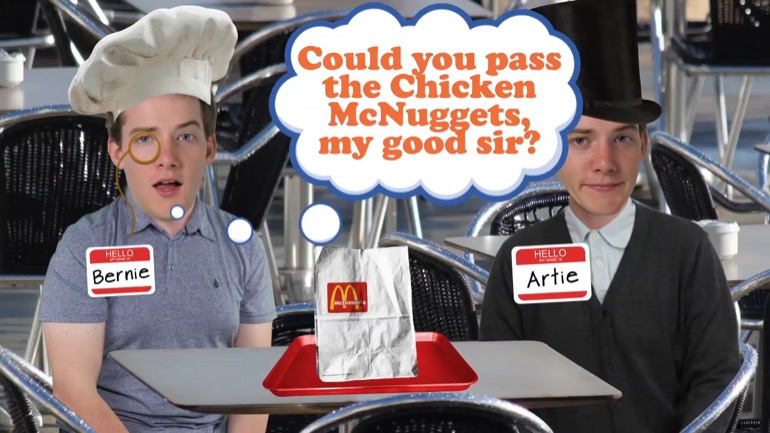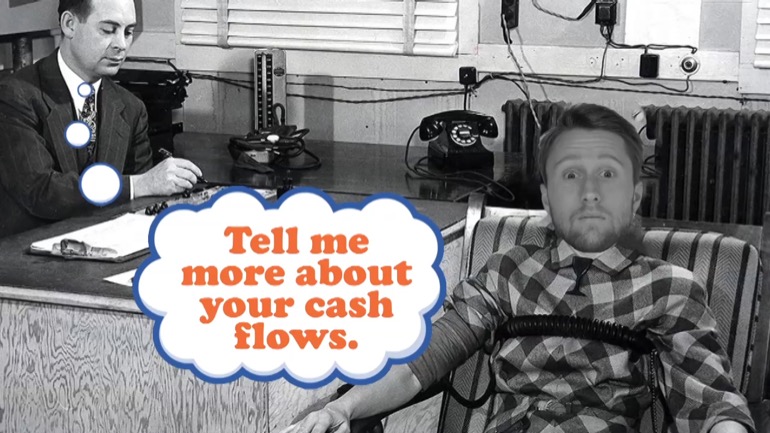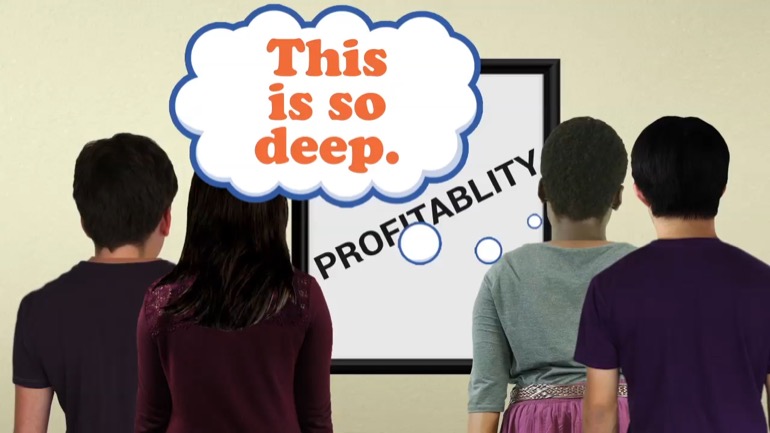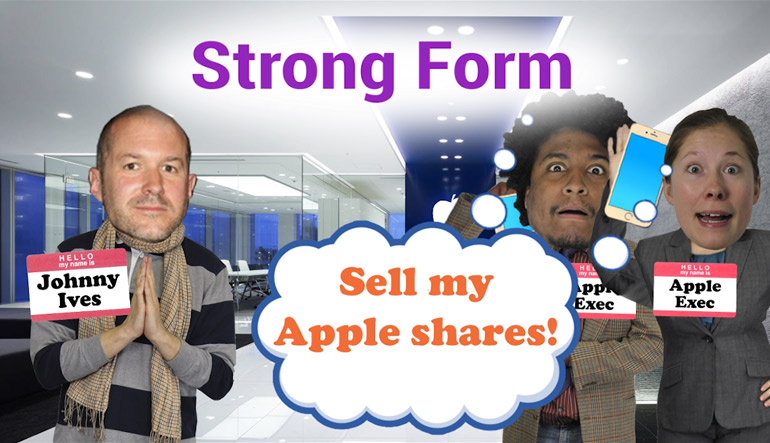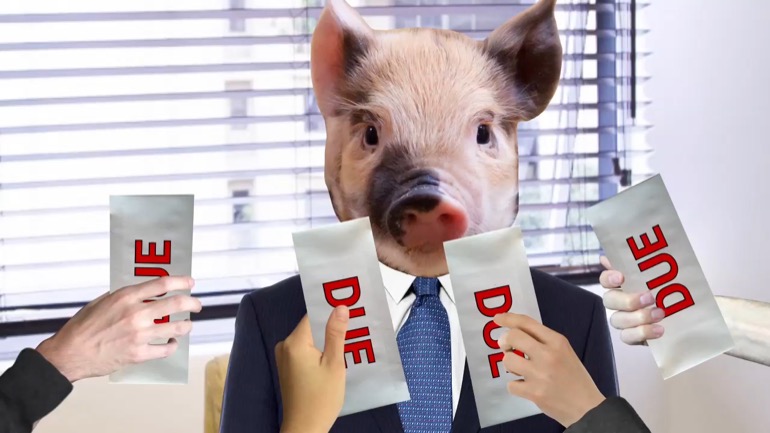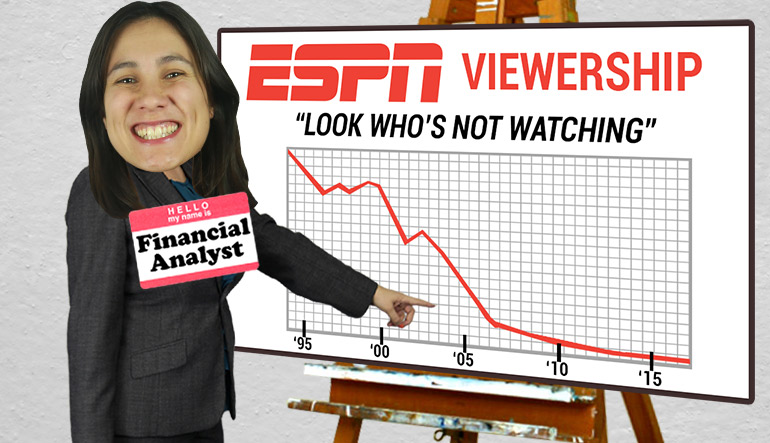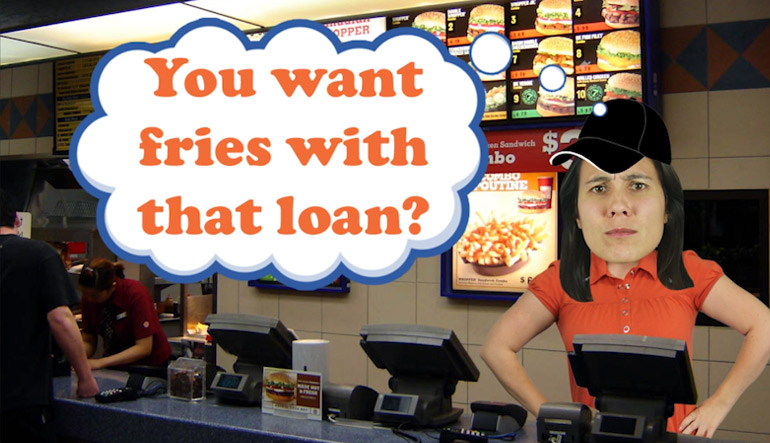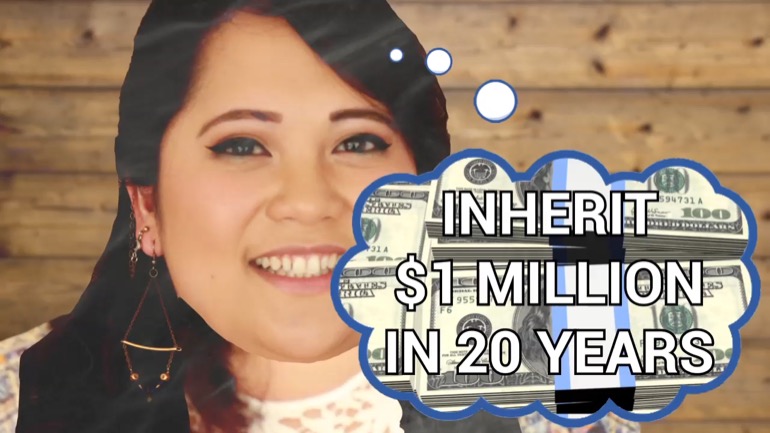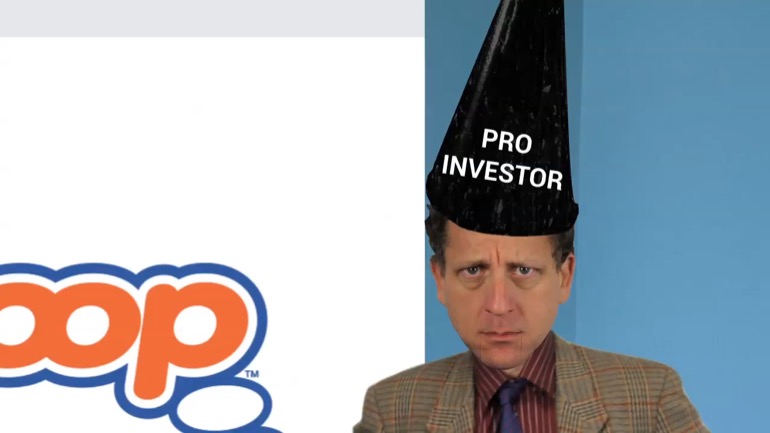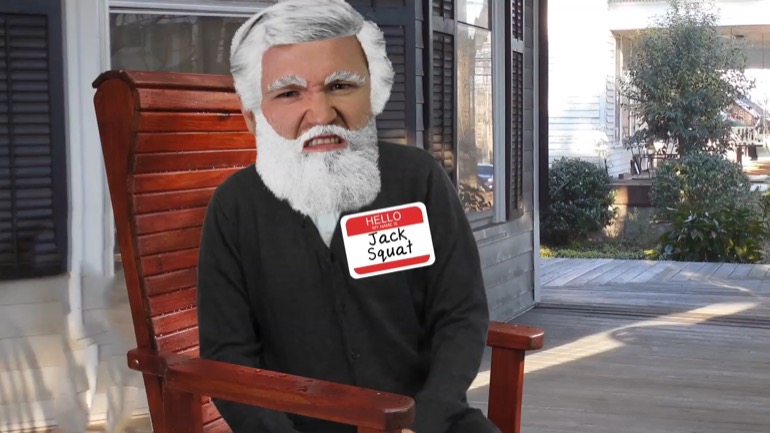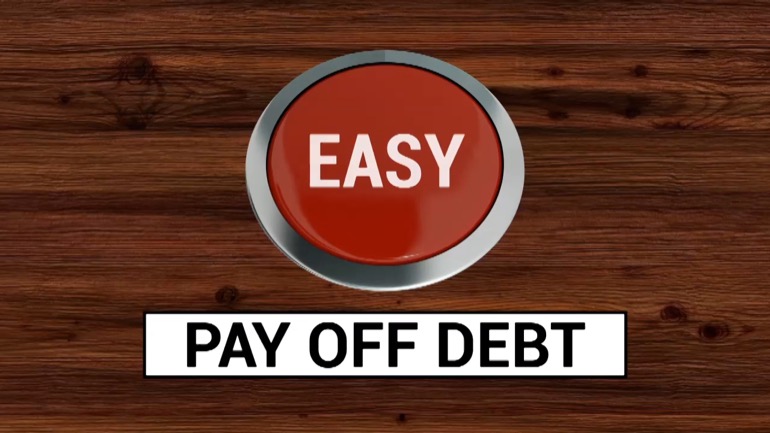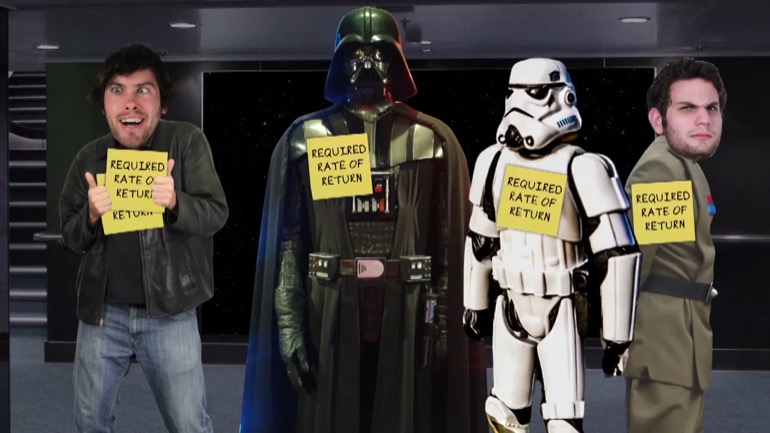ShmoopTube
Where Monty Python meets your 10th grade teacher.
Search Thousands of Shmoop Videos
Principles of Finance Videos 166 videos
How is a company... born? Can it be performed via C-section? Is there a midwife present? Do its parents get in a fight over what to name it? In thi...
Company Formation, Structure, and Inception: Unit Intro. Sorry, Leo DiCaprio fans—we're not going to be breaking down the plot of Inception. We'r...
Okay, so you want to be a company financial manager. It's basically up to you to make money for the shareholders. It would also be swell if you mad...
Principles of Finance: Unit 5, Deconstructing a Bond: Yield 6 Views
Share It!
Description:
In this video, we'll deconstruct a bond in terms of yield. Because when you're renting money, you'd kinda like that investment to, uh... yield something.
Transcript
- 00:00
Principles of finance ah la shmoop deconstructing a bond yield
- 00:07
Whoa Different kind of yield bond yields kind of closer
- 00:10
to the yield from a field you know like so
- 00:12
many corn heads for acre or whatever Okay great Enough
- 00:15
of that topic is yield here Bond yield What happens
Full Transcript
- 00:19
if one day after owning a bond for three and
- 00:22
a half years having a good relationship with it Lots
- 00:24
of friendly romantic saturday night dinners you realize across the
- 00:28
table that you've fallen out of love with it Well
- 00:31
it simply didn't answer your needs And there was no
- 00:34
pina colada song to bring you back together You know
- 00:37
if you like peanut a lot getting god in the
- 00:41
yield or something that apparently doesn't like getting caught in
- 00:43
the rain either So you sell it Will it sell
- 00:45
for the thousand dollars you paid for it Well no
- 00:48
not necessarily It might sell for five hundred dollars It
- 00:51
might sell for two thousand dollars or one hundred eighty
- 00:53
eight Ninety five pricings up to you generally or rather
- 00:56
up to the market Well if the market says the
- 00:58
bonds worth eight hundred fifty bucks that's what it's worth
- 01:01
The key idea here is that just like stock prices
- 01:04
bond prices float You know along with hope there is
- 01:07
a market for them and it moves all over the
- 01:09
place all the time Well at the end of the
- 01:11
day a bond is simple You buy it by losing
- 01:14
cash out of your wallet and gaining a piece of
- 01:16
paper representing a promise You then get a stream of
- 01:20
cash flows in your pocket called interest payments And then
- 01:23
you get your principal back at the very end assuming
- 01:26
all goes well So the only issue is the pricing
- 01:29
of the bonds When they are bought and sold and
- 01:31
revolves around the rate of return investors get for parting
- 01:35
with their hard earned cash for whatever period of time
- 01:38
is involved Basically you're renting money and that rate of
- 01:41
return carries the fancy name yield Bonds are both call
- 01:45
a ble and put a ble meaning a company can
- 01:48
call them at times Or you can put the bond
- 01:51
forced the company to buy it back from you It's
- 01:53
um set price and not all bond Sit around paying
- 01:56
interest their entire lives to then finally come do after
- 01:59
decades been paying off their principle because early call or
- 02:03
early retirement of bond principle is such a common thing
- 02:06
Most bonds would carry a call provisions are quoted in
- 02:09
the form yield to call that is the yield is
- 02:12
quoted assuming that the bond will in fact be called
- 02:15
back by the issuer in the first period in which
- 02:18
it is legally colorable mint let's say you're living in
- 02:24
the worst bond market in american history toward the end
- 02:27
of the jimmy carter presidency in the late nineteen seventies
- 02:31
will prevailing rates for safe customers are nine percent for
- 02:35
loans lasting a year or less and the yield curve
- 02:37
is inverted meaning that if we look out ten years
- 02:40
later the ten year treasury was yielding seven percent so
- 02:44
investors were betting that rates would go down over time
- 02:48
You are the local pizza parlor chain looking to expand
- 02:51
financially not waste lining The venture world doesn't want to
- 02:54
invest in you via equity i owning a part of
- 02:57
you because pizza chains aren't really loved in the public
- 03:00
markets and they don't see how you grow at a
- 03:02
huge rate so all right fair enough but you want
- 03:05
to buy five other pizza restaurants locally you need to
- 03:07
act now like in the next thirty days or someone
- 03:10
else will buy them So you get a nine percent
- 03:13
plus risk plus other premiums of three percent to equal
- 03:16
a twelve percent loan Yeah twelve percent interest on your
- 03:20
loan will the cost of running your capital in this
- 03:22
horrendous time a very expensive inflation stamping capital is twelve
- 03:27
percent per year to rent your money you think this
- 03:29
is crazy high expensive and you don't want to be
- 03:31
saddled with such high rates for the fifteen year duration
- 03:34
of alone at which point you would then have to
- 03:36
pay off the principal So when you borrow the money
- 03:39
in your contract you embedded clever call provisions which says
- 03:43
that in four years you the pizza man may call
- 03:46
the bond back like you'd phone the owner of the
- 03:48
bond whoever owns it at that time you hit the
- 03:50
f sharp key on your piano and you'd sing Hello
- 03:54
it's me I'm paying you off That was adele Ready
- 03:59
her for that cost us a million dollars Technically call
- 04:01
provisioning is the right of the issuer The company raising
- 04:04
Debt to buy back its own bonds usually at a
- 04:07
modest premium to par the company has effectively a call
- 04:11
option married to a bond the old fashioned marriage kind
- 04:14
of way i e no divorce a big part of
- 04:16
bond math involves factoring in these embedded call options which
- 04:20
fester and in fact the otherwise beautiful simplicity of a
- 04:24
stream of predictable cash flows will call provisions benefit the
- 04:28
issuer so that it can be protected if interest rates
- 04:30
fall meaningful e like they did from late seventies to
- 04:33
the early eighties when jimmy carter was shown the door
- 04:36
by voters and ronald reagan came in laden with testosterone
- 04:40
So how did this work I know not that testosterone
- 04:42
part Well you can imagine that in high interest rate
- 04:45
environments like where t bills or yielding over six or
- 04:48
seven percent call provisions are a big deal in a
- 04:51
big part of the term sheet of new bond issues
- 04:53
but in low interest rate environments like when the government
- 04:57
papers yielding two percent there in the whole lot of
- 04:59
focus on call protection because well interest rates can barely
- 05:02
go any lower after processing paper costs and other elements
- 05:06
Well anything below two percent is almost free money to
- 05:08
begin with So with our pizza man we have an
- 05:10
embedded call provisioned with a four year trigger That means
- 05:13
that he is betting that rates will drop in four
- 05:15
years when he then hopes inflation is under control in
- 05:18
the fed has dropped interest rates such that the exorbitant
- 05:21
price of renting money at that twelve percent for your
- 05:23
figure drops down to something closer to six or seven
- 05:27
percent at which time the pizza man will simply call
- 05:29
the loan of the very expensive twelve percent paper he
- 05:32
was renting for such high prices and refinance the loan
- 05:35
with much more efficient six percent paper going forward like
- 05:39
he'll cut his interest payments in half And if you
- 05:41
could rent your same apartment building for half the price
- 05:44
like why wouldn't you And for what it's worth the
- 05:46
process of bonds being called isn't always straightforward Of course
- 05:49
it isn't Often there is a lottery provisioned meaning that
- 05:52
the issue of the bonds is only allowed to call
- 05:54
back say and after four years and only twenty percent
- 05:57
of the bonds they have outstanding then each year well
- 06:00
they can call another say twenty percent such after for
- 06:02
five years past that four year cliff off then the
- 06:05
bond has been entirely retired or called back like refinance
- 06:10
with cheaper paper or simply paid off because the company
- 06:13
that issued the bonds was profitable old school right they
- 06:16
generated own cash paid off bonds So how do you
- 06:18
calculate the yield to call here when there are odds
- 06:21
yo won't be called well you could make up statistical
- 06:24
grids and discount back to account for the risk of
- 06:26
being called But that clouds the real numbers a lot
- 06:29
of times that since the future changes so much from
- 06:31
what most people think it will be Well you get
- 06:33
bad data when you practice is valuation technique more often
- 06:37
than not bottom line yield is not always yield Didn't
- 06:40
yoda say that you know unless it's a traffic sign
- 06:43
in which case well you better I think that was 00:06:45.964 --> [endTime] been diesel who said that
Related Videos
GED Social Studies 1.1 Civics and Government
What is bankruptcy? Deadbeats who can't pay their bills declare bankruptcy. Either they borrowed too much money, or the business fell apart. They t...
What's a dividend? At will, the board of directors can pay a dividend on common stock. Usually, that payout is some percentage less than 100 of ear...
How are risk and reward related? Take more risk, expect more reward. A lottery ticket might be worth a billion dollars, but if the odds are one in...







